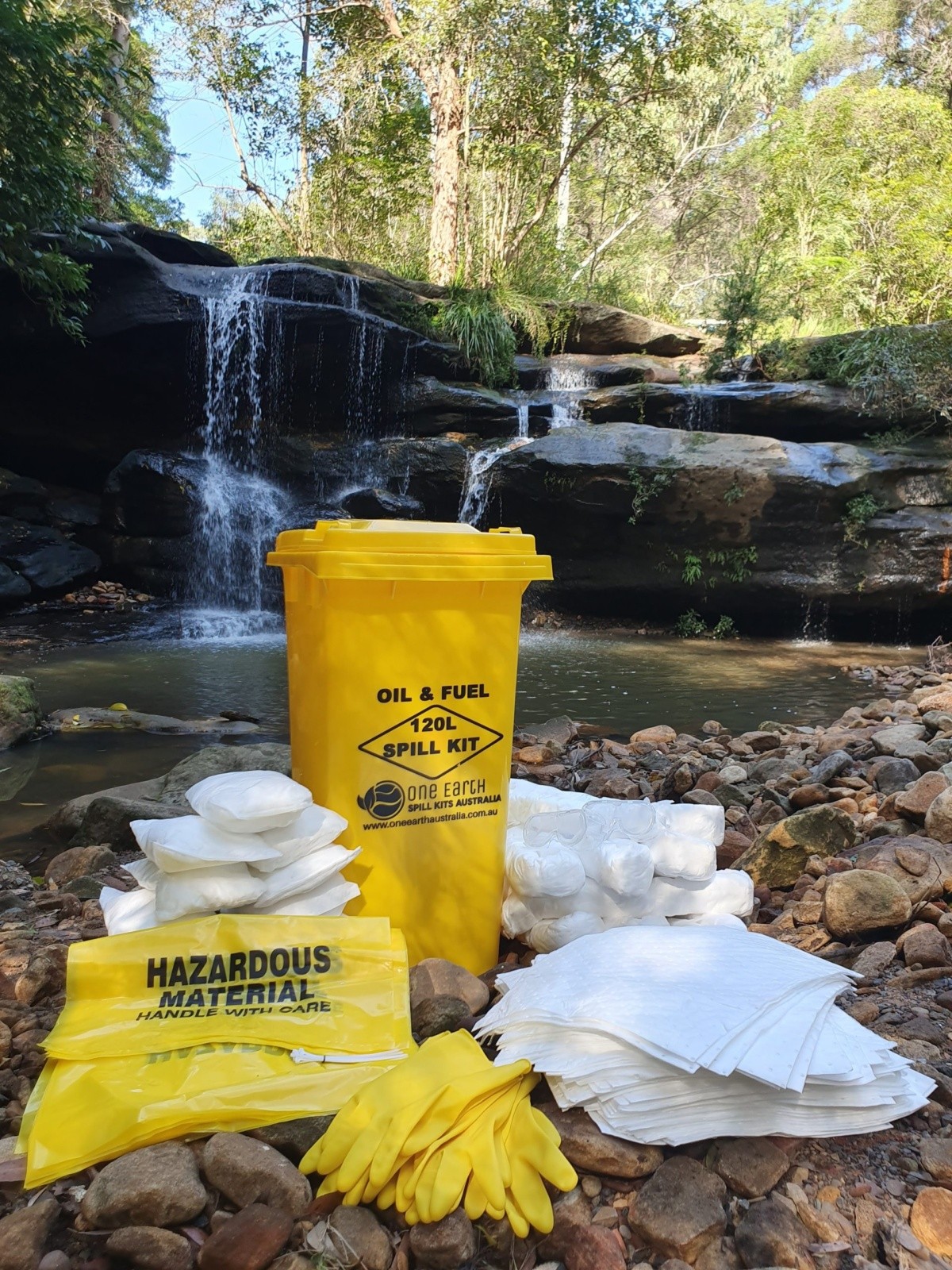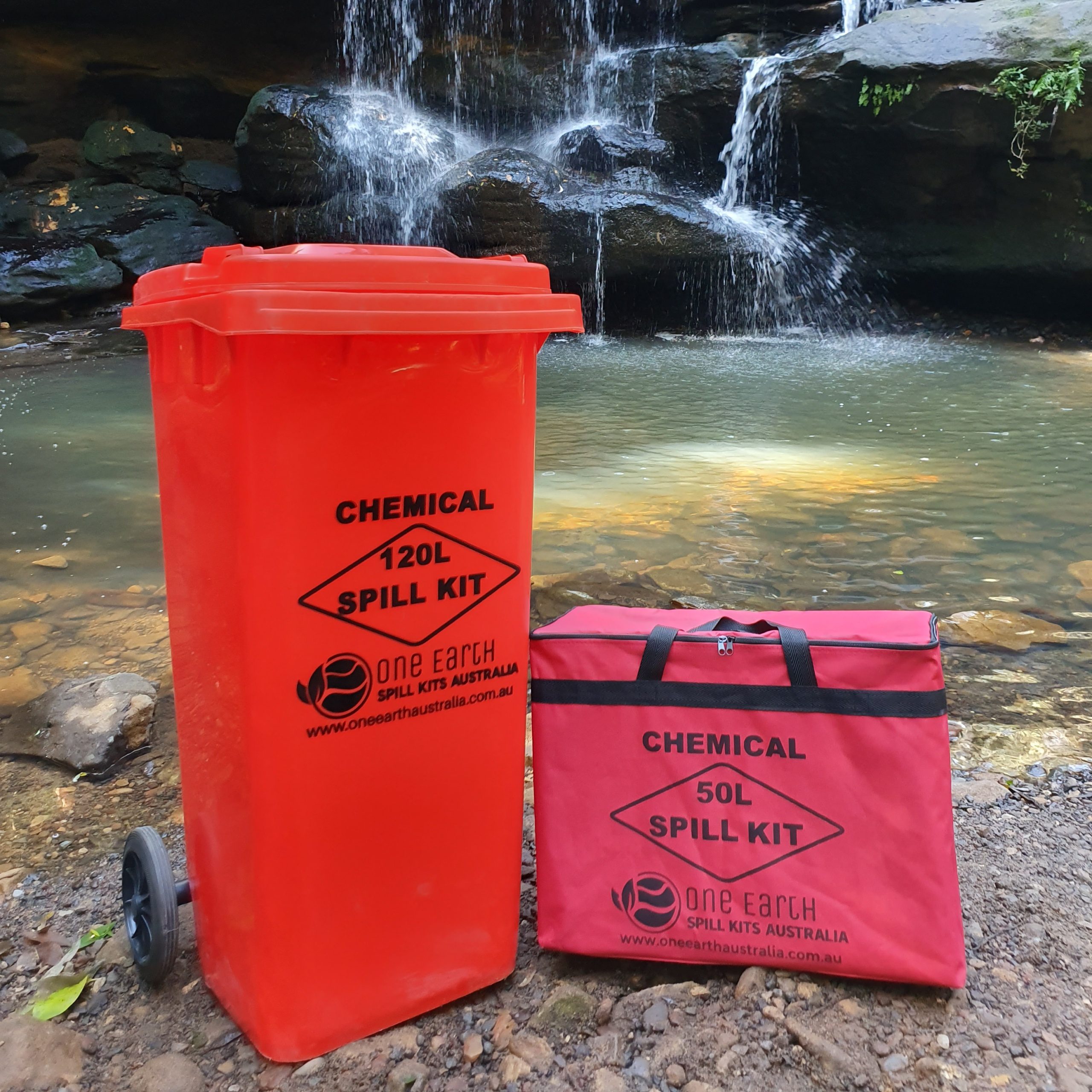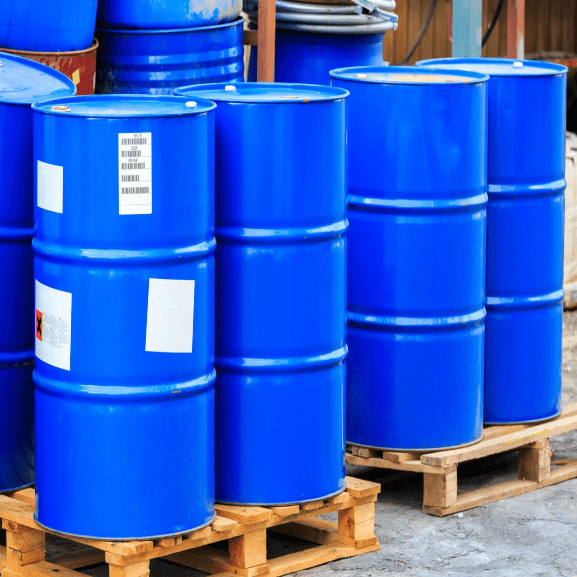Spill kits are indispensable tools designed to manage spills effectively, preventing them from escalating into larger environmental or safety hazards. Whether it’s oil leaking under machinery, chemicals spilling in a workshop, or water pooling on the floor, spill kits provide a quick and reliable solution to contain and clean up spills before they cause harm. However, spills, especially chemical spills, can have devastating consequences if not addressed promptly. Understanding the environmental impact of these spills and how spill kits can mitigate their effects is crucial for promoting sustainability and protecting ecosystems.
The importance of spill kits cannot be overstated. In industries where hazardous substances are used, spill kits ensure compliance with safety regulations while minimising risks to people, property, and the environment.
For small businesses or households, affordable options like cheap spill kits or compact spill kit bins provide an accessible way to prepare for spills without exceeding budgets. Larger operations may benefit from comprehensive emergency spill kits, which include everything needed for rapid deployment during major incidents.
The Environmental Impact of Chemical Spills
Chemical spills pose a significant threat to the environment, contaminating ecosystems and harming wildlife. When hazardous substances like oils, acids, or solvents spill, they often seep into soil and water systems, causing long-term damage. The environmental impact of chemical spills can be categorised into several key areas:
1. Contamination of Water Systems
One of the most severe consequences of chemical spills is the contamination of water systems. When hazardous substances like oil or industrial chemicals spill, they often make their way into rivers, lakes, and oceans. Oil spills, for instance, form a layer on the surface of water, smothering aquatic life and preventing oxygen exchange. This lack of oxygen can lead to the death of fish and other marine organisms, disrupting entire ecosystems. Even smaller spills can accumulate over time, leading to long-term pollution that affects water quality for both humans and animals.

2. Soil Degradation and Loss of Fertility
Chemical spills also degrade soil quality, particularly when acidic or corrosive substances are involved. These chemicals can strip the soil of essential nutrients, making it infertile and unsuitable for plant growth. In agricultural areas, this loss of fertility can have cascading effects on food production and local economies. Additionally, contaminated soil can release pollutants into groundwater, further exacerbating the problem. Once soil is contaminated, remediation efforts can be costly and time-consuming, underscoring the importance of prevention.
3. Harm to Wildlife and Biodiversity
Wildlife is particularly vulnerable to the effects of chemical spills. Animals and plants exposed to hazardous substances may suffer from poisoning, habitat destruction, or reproductive issues. For example, birds affected by oil spills lose their ability to fly due to the coating on their feathers, while fish and other aquatic organisms may suffocate due to reduced oxygen levels in polluted water. These impacts ripple through ecosystems, threatening biodiversity and destabilising food chains. The loss of even a single species can have far-reaching consequences, disrupting delicate ecological balances.
4. Air Pollution and Human Health Risks
Certain chemical spills release toxic fumes into the air, posing significant health risks to humans and animals. Volatile organic compounds (VOCs) and other hazardous substances can cause respiratory issues, skin irritation, and even long-term illnesses like cancer. Communities living near spill sites are particularly vulnerable, as prolonged exposure to these pollutants can lead to chronic health problems. Air pollution caused by chemical spills can also contribute to climate change, further compounding their environmental impact.
5. Long-Term Environmental Damage
The environmental damage caused by chemical spills is often long-lasting. For example, heavy metals and synthetic chemicals can persist in the environment for decades, accumulating in soil and water systems. This persistence makes remediation efforts challenging and costly. In some cases, the damage may be irreversible, highlighting the urgent need for prevention and rapid response to spills. The longer a spill remains unaddressed, the greater the risk of long-term environmental harm.
How to Overcome These Impacts
The key to reducing the environmental impact of chemical spills lies in prevention and effective management. Spill kits play a vital role in this process by enabling quick containment and clean-up, preventing spills from spreading and causing further harm. Here are some strategies to overcome the impacts of chemical spills:
1. Using Spill Kits Effectively
Spill kits are designed to provide a rapid and effective response to spills, making them indispensable in both industrial and domestic settings. Absorbent socks or booms can be used to create barriers that stop spills from reaching drains or waterways. Disposal bags ensure that contaminated materials are collected safely and disposed of according to regulations. By acting quickly with a spill kit, users can significantly reduce the risk of spills escalating into larger environmental or safety hazards.
2. Adopting Proactive Measures
Prevention is always better than cure. Businesses and individuals can adopt proactive measures to minimise spill risks. Regular maintenance of equipment, proper storage of hazardous substances, and employee training are all effective strategies for preventing spills. Additionally, using eco-friendly absorbents and biodegradable materials in spill kits aligns with global sustainability goals, further reducing the environmental footprint of spill management.
3. Investing in Affordable Solutions
For small businesses or households, affordable options like cheap spill kits or compact spill kit bins provide an accessible way to prepare for spills without exceeding budgets. Larger operations may benefit from comprehensive emergency spill kits, which include everything needed for rapid deployment during major incidents. Regardless of the size of the operation, investing in spill kits ensures you’re prepared to handle spills responsibly.

Best Practices for Using Spill Kits
To maximise the effectiveness of spill kits, follow these best practices:
- Training and Preparedness: Ensure employees, family members, or team members are trained to use the spill kit properly. Conduct regular drills to familiarise everyone with the components and procedures.
- Regular Inspections: Check the spill kit periodically to ensure all components are intact and ready for use. Replace used or expired items immediately to maintain readiness.
- Act Quickly: Time is critical when managing a spill. Use the spill kit to contain and clean up the spill as soon as possible to minimise risks and damage.
- Proper Disposal: Dispose of contaminated materials safely and in accordance with local regulations to prevent further environmental harm.
Conclusion
Chemical spills have far-reaching environmental impacts, contaminating ecosystems, harming wildlife, and posing health risks to humans and animals. However, by using spill kits effectively, businesses and households in Melbourne and Perth can mitigate these impacts and promote sustainability. Investing in affordable and reliable spill kits ensures you’re prepared to handle spills responsibly, protecting both the environment and human health. By adopting proactive spill management practices and following best practices, we can work together to safeguard ecosystems and reduce the environmental footprint of spills.





